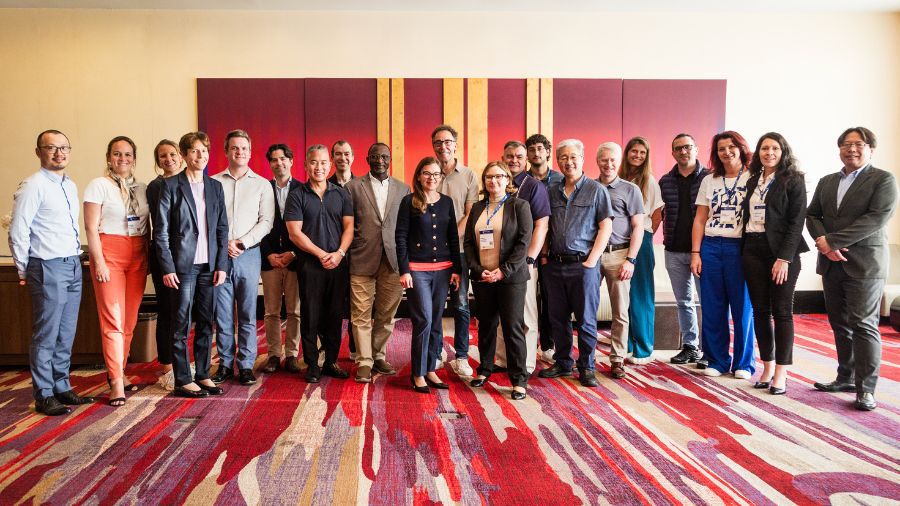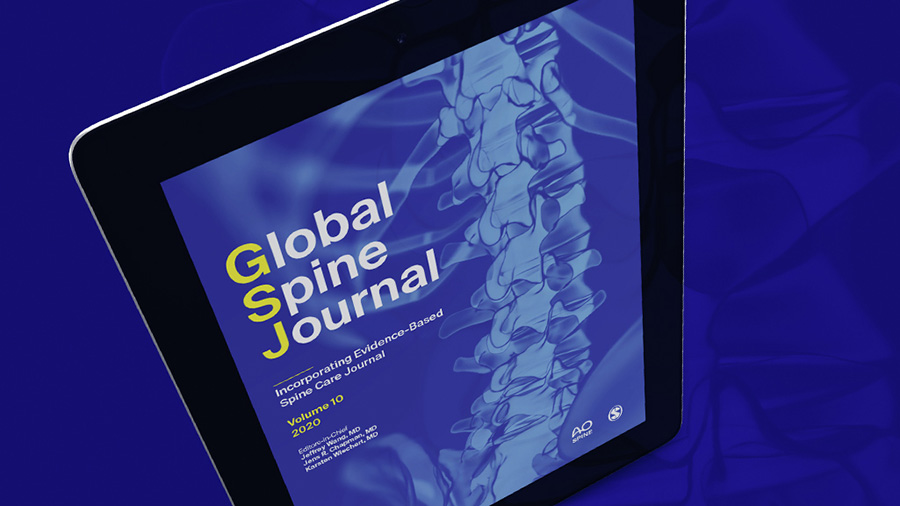New from the Global Spine Journal and the AO Spine Knowledge Forums

Bridging the gaps between clinical research, knowledge dissemination, and evidence-based practice is the aim of a new feature that debuted in the September 2024 issue of the Global Spine Journal (GSJ), the official scientific journal of AO Spine. With the current and similar future issues, the GSJ and the AO Spine Research Commission step up their efforts to bring spine surgeons the latest, expert-driven research in spine care: AO Spine Knowledge Forum (KF) members will contribute a review article. Each KF will take on the task in turns, covering the KF pathologies of tumor, trauma and infection, deformity, degenerative, and spinal cord injury.
Additionally, the featured review articles will become part of an easily accessible special collection, AO Spine Knowledge Forum Reviews. Each of these articles will bring readers a review of five to six key articles selected by the KF members along with their recommendations for how best to integrate research results into clinical practice. A QR code embedded in the first review article provides readers the unique opportunity to engage in knowledge translation (KT).
AO Spine Research Commission Past Chairperson and KF Tumor Advisory Board member Charles Fisher said the concept of expanding the KFs’ role in the GSJ will support and accelerate spine surgeons’ evidence-based decision-making and this, in turn, will lead to better patient outcomes. The problem isn’t the research being done or published; the problem is getting new important discoveries into clinicians' hands so our patients can benefit as soon as possible.
“With significantly more research being published and technology rapidly evolving, it’s becoming more challenging for busy surgeons to stay up to date on the latest insights in their fields. Researchers and educators must be sensitive to this issue and come up with innovative ways to translate new knowledge. This is the first of a series of AO initiatives to improve KT to the world’s spine surgeons,” explained Fisher, a professor at Canada’s University of British Columbia and head of the Vancouver General Hospital Combined Orthopedic and Neurosurgical Spine Service. “The KFs’ review articles and guest editorials in the GSJ will help bridge that KT gap, bringing surgeons evidence-based recommendations to integrate into their practice and improve their patients' outcomes.”
AO Spine Research Commission Chairperson Klaus Schnake said the concept—part of AO Spine’s larger KT initiative—underscores AO Spine’s position as the leading global academic spine community that creates, disseminates, and exchanges knowledge to promote excellence in patient care and outcomes.
“Since February 2024, the AO Spine Knowledge Translation Task Force has been designing a sustainable, integrated framework for generating and translating knowledge,” said Schnake, head of the Interdisciplinary Center for Spinal and Scoliosis Surgery at the Malteser Waldkrankenhaus St Marien in Erlangen, Bavaria, Germany. “KF members’ review articles and guest editorials will make a significant contribution to KT by reducing the gap between evidence and application. Swift scientific progress is as dependent on KT as it is on the work itself and the AO—with its international orientation and strong position in research, education, and community—is uniquely positioned to become a KT superpower.”
In the inaugural GSJ guest editorial, guest editors Fisher, Janneke Loomans and Olesja Hazenbiller explore how KT can accelerate the use of research outcomes to the benefit of patients and surgeons.
“…[W]e cannot solve the complexities and impediments to KT in one go, but hopefully the ‘Streamlining the Journey of Research into Clinical Practice’ articles will make your patients and practice flourish,” they wrote.
In the first review article, Streamlining the Journey of Research Into Clinical Practice: Making Your Patients and Practice Flourish Understanding and Setting Treatment Expectations for Patients With Metastatic Spine Tumors, authors Jeremy Reynolds, Raphaële Charest-Morin, and Anne Versteeg, et al, describe their qualitative study evaluating pretreatment patient expectations and posttreatment patient experiences among patients with spinal metastatic tumors.
Also, available online first is the article on Streamlining the Journey of Research Into Clinical Practice: Making Your Patients and Practice Flourish Optimizing Management and Minimizing Risk of Osteoporotic Vertebral Fractures – Perspectives of the AO Spine KF Trauma and Infection Group Key Opinion Leaders.
The GSJ is the first fully open-access spine surgery journal with an impact factor; the journal receive an impact factor of 2.6 for 2023, representing an increase from the previous year. The GSJ’s five-year impact factor is 3.2.






